2020 marked a landmark in the history of the Marvel Cinematic Universe. For the first time since 2009, there was no feature film entry in the MCU canon. And while that was a loss for fans of the most expansive world-building franchise in cinema history, we can also choose to see some silver linings. It marked a particularly great chance for some to rewatch and refresh memories; for some others, it might be a chance to take in the entire MCU for the first time. 2021, then, marked a shift. The MCU successfully migrated to streaming television with five event limited series: WandaVision, The Falcon and the Winter Soldier, Loki, What If… , and Hawkeye all landed in the year 2021. The movies were big too—Black Widow, Shang-Chi, and Eternals—but almost seemed to take a backseat until the big boy, Spider-Man: No Way Home came out in December.
That momentum will continue into 2022, which will see the release of more event series—including Moon Knight, Ms. Marvel, She-Hulk, and Secret Invasion—and some of the most awaited movies in the MCU, starting with Doctor Strange in the Multiverse of Madness.
If you’re someone who’s been along for the ride for the past 13 years, it might be a little difficult to plot a full rewatch of the whole saga; 27 films is a tough lift, and we can’t blame you for wanting to watch Thor: Ragnarok here or Captain America: The Winter Soldier there. And if anyone just wants to watch the first film in a series—say, Black Panther or Guardians of the Galaxy—the movies tend to stand very nicely on their own.
But at the end of the day, these movies are unique because of the way they all fit together. If you’re planning to really watch the MCU through, all the way, whether it’s for the first time or the sixth time, there’s only one right way to do it.
The only way to watch the Marvel movies, is in the order in which they were released.
That’s right. Just like with Star Wars, the now-discontinued X-Men movies, and the DC Extended Universe, we’re going to advocate watching these in one very specific way: in order. Sure, some people might have theories about watching something one way, to better understand one thing, and better frame this, and get a better handle for that. But we’re going to go ahead and call that a bunch of hogwash—these movies were designed for in-theater viewing, which would mean its designed for people who have seen every movie at that given moment. Reveals are meant to be seen as if that is the latest movie in the series. When Stephen Strange is briefly mentioned in Captain America: The Winter Soldier, for example, that’s meant to be a bit of foreshadowing for the character’s introduction in his own solo film a few years later. Just a hint. Just a little bit.
If you’ve already seen every Marvel movie, you might want to rewatch them in chronological timeline order.
Meaning, the event that occurred first in the timeline—say, Steve Rogers/Captain America living during WWII—comes first. If you wanted to watch this way, though we wouldn’t recommend it, this would be the order:
- Captain America: The First Avenger
- Captain Marvel
- Iron Man
- Iron Man 2
- The Incredible Hulk
- Thor
- The Avengers
- Iron Man 3
- Thor: The Dark World
- Captain America: The Winter Soldier
- Guardians of the Galaxy
- Guardians of the Galaxy Vol. 2
- Avengers: Age of Ultron
- Ant-Man
- Captain America: Civil War
- Spider-Man: Homecoming
- Doctor Strange
- Black Panther
- Thor: Ragnarok
- Black Widow
- Avengers: Infinity War
- Ant-Man and the Wasp
- Avengers: Endgame
- Spider-Man: Far From Home
- Shang-Chi and the Legend of the Ten Rings
- Eternals
- Spider-Man: No Way Home
But, again, that’s not what we would recommend; if you’re choosing to watch these movies in that “chronological order,” you’ll be missing out on key reveals in favor of just seeing things “in order.” It’s not worth the trade-off. If you can follow Infinity Stones and intergalactic travel, you can follow a timeline that jumps around here and there. We promise.
Here’s the correct order you should watch the Marvel movies in—the order in which they were released.
All that being said, [deep breath], here’s the real order you should watch the movies. The order in which they were released:
Iron Man (2008)
Every Marvel watch through should begin with Iron Man, the movie that started it all. Sure, Tony Stark—a snarky, billionaire, playboy arms dealer—is something of a relic from the late Bush era. But the movie plants all the seeds of what the MCU will eventually become—and that post-credits scene is a tease for the ages. If you don’t watch this first, you lose all the excitement of the enormous, expansive world that is only just beginning.
The Incredible Hulk (2008)
The Incredible Hulk is the closest thing to an exception of anything on this entire list in that…if you want to, you can probably skip the whole thing entirely. The most obvious disconnect is that Edward Norton plays Bruce Banner/The Hulk here (he’s replaced by Mark Ruffalo for all subsequent appearances), but the movie also has a number of story hints that were never followed up on (Tim Blake Nelson gets an introduction and a transformation scene as classic comic character The Leader…and it has never been followed up on).
But if you’re going to watch all the movies, you’ve got to watch The Incredible Hulk. And the connective tissue is there—Robert Downey Jr. has a fun cameo, and William Hurt’s General Ross turns out to be a character who shows up throughout the series.
Iron Man 2 (2010)
Another one that is…not exactly the shining jewel of the MCU. But Iron Man 2 has pivotal pieces for what would become the future of the franchise, including the first substantial role for Samuel L. Jackson as Nick Fury, and the introduction of Scarlett Johansson as Black Widow. Mickey Rourke’s villain is…well, it’s bad, and he’s bad. But Sam Rockwell as secondary antagonist Justin Hammer is a delight (and they should bring him back!), and Garry Shandling’s cameo as a pesky Senator winds up tying in quite nicely a bit down the line.
Thor (2011)
The introduction of one of the MCU’s most iconic characters came in 2011’s Thor. It’s perfectly solid, and sets the table for Chris Hemsworth’s many appearances in films throughout the next decade. The movie also introduces the MCU’s best villain in Loki (Tom Hiddleston) and even provides the first glimpse at Hawkeye (Jeremy Renner) in a brief cameo. There are also glimpses of some of Chris Hemsworth’s comedic ability, which he puts on great display down the line in Thor: Ragnarok and Avengers: Endgame.
Captain America: The First Avenger (2011)
The first appearance of Chris Evans as Cap, and his true origin story. Also, some minor references that you get out of context, like the presence of Tony Stark’s father, Howard. Also, one of the best endings in the entire MCU—and leads directly into The Avengers.
The Avengers (2012)
The Avengers was the first big payoff for all the world-building that Marvel had done over the past several years (and marked the first appearance of Mark Ruffalo as Bruce Banner/Hulk). The movie is vital to the universe, and its events are referenced consistently throughout the rest of the franchise—even to this day.
Iron Man 3 (2013)
Iron Man 3 is the first movie of what the MCU refers to as “Phase 2,” which essentially means it shows the aftermath of the events of The Avengers. Throughout the entire movie—which is the last solo Iron Man outing—we see Tony Stark as he deals with PTSD from the Avengers battle of New York. This movie has a big twist about 2/3 through that split audiences—but for our money, it’s expertly done.
Thor: The Dark World (2013)
So, Thor: The Dark World is another that is…not exactly the best in the MCU. Yet it’s still vital to the overall story being told, expanding the character of both Thor and Loki and providing another of the franchise’s very best endings. Just put up with this movie’s extremely lackluster villain and get it into your system for the important parts.
Captain America: The Winter Soldier (2014)
Not only is Captain America: The Winter Soldier very possibly the best movie in the entire MCU—it’s a brilliant take on an espionage film—but it’s perhaps the most essential reason that you need to watch these movies in order. On the off-chance that you haven’t seen it yet, we’ll just say that something you previously took for granted changes in a major, major way for the MCU’s plot going forward, here. Plus, we get our first look at Anthony Mackie as Falcon, and the real introduction to Sebastian Stan’s titular character. We’re still feeling the aftershocks of this one.
Guardians of the Galaxy (2014)
Another of the MCU’s best. They really started to hit their stride at a certain point, huh? The Guardians movies perhaps more than any others in the MCU stand out as movies that tell their own stories; if you want to watch this without any that come before or after, you’ll be perfectly all right. That being said, once the Guardians characters are introduced into the larger storyline (in Avengers: Infinity War), you’ll be happy to have the extra context. Not to mention that it’s just a fun, badass story. James Gunn knows what he’s doing.
Avengers: Age of Ultron (2015)
The second full-team Avengers outing isn’t the greatest movie on its own, but, in the spirit of this list, is a fairly important piece to set up all the movies that come after. If we’re talking WandaVision, well, both Wanda (Scarlet Witch) and Vision (previously known as J.A.R.V.I.S.) are introduced here. There are also some fun “Superheroes just hanging out” moments, where Don Cheadle and Anthony Mackie really shine—and a joke about the Avengers all trying to pick up Mjolnir leads up to a wonderful payoff that will come four full years down the line.
Ant-Man (2015)
Rather than end with the bang of Avengers: Age of Ultron, Marvel decided to close out its Phase 2 with the small-scale fun of Ant-Man. And it’s a great choice—the Ant-Man movies prove that the entire universe doesn’t need to be at stake for a Marvel movie to be fun; these are basically just heist movies with a bit of superpowers and radiation added in. Ant-Man is another that you could basically watch on its own, but Scott Lang (Paul Rudd) is great in the role (as always), and winds up figuring fairly strongly into the overarching story. So you’d be helping yourself if you consider the full picture.
Captain America: Civil War (2016)
At 11 films, Phase 3 of the Marvel Cinematic Universe was its biggest yet—and it kicked things off with Civil War, which had major impact on the entire world. Not only did it introduce Black Panther (played by the late Chadwick Boseman) to the world, but it brought the MCU’s version of Spider-Man (Tom Holland) into the fold for the first time. The plot around government intervention felt more mature than a typical Marvel through line, and the characters seriously developed in ways that changed them for several movies. Some of Chris Evans and Robert Downey Jr.’s best work comes here, and the plot is essential to lay the groundwork for some of the major events in Avengers: Infinity War and Endgame.
Doctor Strange (2016)
In addition to advancing (and, in most ways, wrapping up) the overarching MCU’s plot, Phase 3 also set out to introduce a number of new heroes who could carry on the torch when the OGs (Iron Man, Thor, Captain America, etc) are no longer around. One of those was the titular Doctor Strange, played to perfection by Benedict Cumberbatch. This origin story does actually serve OK to watch on its own if you so chose, but it fits really nicely as a puzzle piece into the larger picture if you already know the world in which this all exists. A sequel, Doctor Strange in the Multiverse of Madness, is expected to be released in 2022.
Guardians of the Galaxy Vol. 2 (2017)
The two Guardians movies basically work in a vacuum; if you want to watch Vol 2 (and see Kurt Russell as Star-Lord’s father), you’ll absolutely need to have seen Guardians of the Galaxy first. Likewise, you’ll need to see this one before you meet up again a few years down the line with the Guardians when they show up in Avengers: Infinity War.
Spider-Man: Homecoming (2017)
Tom Holland might just be the best Spider-Man ever (sorry Tobey and Andrew!), and for the most part, his first MCU installment lives in is own vacuum as well. Homecoming skips the origin story we already know (and thank god we don’t have to watch poor Uncle Ben die again), and instead drops us right into teenage science nerd Peter Parker’s every day life as he’s mentored by that Tony Stark guy. Michael Keaton plays one of Marvel’s best villains here.
Since Sony still owns the rights to Spider-Man (the character exists in the MCU thanks to a smart deal between the two studios), the Spider-Man series doesn’t live on Disney+.
Thor: Ragnarok (2017)
Directed by Academy Award winner Taika Waititi (Jojo Rabbit), Thor: Ragnarok is easily a top-tier MCU movie, and could easily make a case for being the very best. Not only does the movie have the great action and adventure that fans of the Marvel world have come to expect, but Waititi brings his humor and pacing to a franchise that used his infusion of energy perfect. Mark Ruffalo co-stars as Banner/Hulk, Tessa Thompson’s Valkyrie is introduced, and villains played by Jeff Goldblum and Cate Blanchett are great. The movie leads directly into the events of Avengers: Infinity War, so there’s that, too. Waititi will be returning to the Thor franchise when he directs the upcoming Thor: Love & Thunder, and we simply cannot wait for that.
Black Panther (2018)
Another one that can absolutely exist in its own bubble is Black Panther, which you can basically watch whenever you want (there are some minor references to the events of Captain America: Civil War, and Andy Serkis’ character first appeared in Ultron, but its nothing that will take you out of the movie if unfamiliar). The movie features great acting from the whole cast, and is directed by Ryan Coogler, who had shown his talent before with movies like Creed and Fruitvale Station, but gets his chance to really shine with a big Marvel budget here.
Stream It Here
Avengers: Infinity War (2018)
The story to wrap up what Marvel calls “The Infinity Saga”—basically, everything you’ve seen up to this point—was so epic that it couldn’t fit into just one movie. So the first, Empire Strikes Back-esque part is Infinity War, which is an absolutely massive crossover of basically every Marvel character and world you’ve seen to this point. And it helps that they go against the series’ most powerful villain, Thanos (Josh Brolin), who had been built up at this point through several previous appearances of his own. That’s part of what’s great about the MCU; we know Thanos is scary because we’ve been hearing about him for years by the point he’s finally deployed. He was first teased in a credits scene of the original Avengers, in 2012, and he’s finally at full strength in 2018. Now that’s planning.
Ant-Man & The Wasp (2018)
Paul Rudd, Evangeline Lily, and Michael Douglas return here (along with more friends from the first Ant-Man) for another smaller-scale tale that also adds Walton Goggins and Michelle Pfeiffer to its fun cast. The movie could basically take place at any time—until its ending, which leads us right into Avengers: Endgame.
Captain Marvel (2019)
Captain Marvel is another that you can basically watch at any time, but its clear that its titular character is one that’s going to be around for quite some time. Brie Larson stars as Carol Danvers, who is training in another galaxy with Jude Law until she lands in 1990s United States, and meets a younger Nick Fury (Samuel L. Jackson) and Phil Coulson (Clark Gregg) than we’re used to. A cat (or a flerken?) and Ben Mendelsohn, along with a ’90s soundtrack and aesthetic make this a fun one for any time.
Avengers: Endgame (2019)
It’s harder than you might think to stick a landing—just ask Star Wars: The Rise of Skywalker, or, *gulp* Game of Thrones. Luckily, Endgame is nothing like any of those; somehow, this movie deploys time travel, about a million different flashbacks and callbacks, and an enormous cast—and still manages to wrap “The Infinity Saga” up in a brilliant, perfect way. You’ll get chills, you’ll laugh, you’ll cry, and you’ll want to watch the whole damn thing over again.
Spider-Man: Far From Home (2019)
Just like with the last phase and Ant-Man, Phase 3 of Marvel instead decided to go out not with the big bang (which would’ve obviously been Endgame here), but instead a bit of an aftermath and a view of things to come. Far From Home looks directly at the trauma of Endgame‘s finale, and sees a cast of old friends (Holland, Jackson, Zendaya, Cobie Smulders, Jon Favreau) joined by an amazing newcomer in Jake Gyllenhaal, who has made bizarre characters his thing in the last few years (see: Nightcrawler, Prisoners, Velvet Buzzsaw, among others), and similarly Goes For It here.
WandaVision (2021)
No, not a movie, but actually would rank among Marvel’s best if it was. WandaVision was the MCU’s first foray into streaming TV, and it hit all the right beats, bringing movie star talent (in Elizabeth Olsen as Wanda Maximoff/Scarlet Witch and Paul Bettany as Vision) to the small screen for a series that’s interesting, committed, and, most importantly, did something really unique and different. Bonus points for Kathryn Hahn, because, well, she just rules.
The Falcon and the Winter Soldier (2021)
The Falcon and the Winter Soldier picks up right where Avengers: Endgame left off. We learn what happened after Steve Rogers handed the shield off to Sam Wilson, and we learn how the burgeoning bromance of Sam and Bucky Barnes could possibly go on without their mutual pal Steve. The show smartly brings both Sharon Carter and Zemo back into the mix, but the real highlight is Wyatt Russell as John Walker—a super soldier who wants so badly to be Steve Rogers, but never quite does it right.
Loki (2021)
Loki gives the MCU’s greatest villain his own showcase for the first time, and this six-part limited series is unafraid of having a bizarre tone. Set up directly by the time-travel hijinx of Endgame, Loki finds Tom Hiddleston in peak form, and sharing many scenes with a new pal played by Owen Wilson. A lot of time travel, a lot of mischief, and one of Marvel’s best projects in a while, overall.
Black Widow (2021)
The MCU returns to the big screen for the first time in more than two years with the release of the oft-delayed (due to Covid-19) Black Widow. The solo story set around Scarlett Johansson’s assassin tells its primary story in the set period of time between Captain America: Civil War and Avengers: Infinity War, when she was ostensibly on the run. But the movie also tells more of her background and origin story than fans have ever heard before, and introduces her “sister” (played by Florence Pugh), “mother,” (played by Rachel Weisz) and “father,” (played by David Harbour). Add a banger of a credits scene to the mix, and the MCU is finally cooking with gas again. Full speed ahead.
What If…? (2021 – ?)
What If…? is an anthology series of sorts, and doesn’t feel totally essential to the overall story of the MCU—at least not yet. This series, Marvel Studios’ first foray into animation, follows The Watcher (voiced by Jeffrey Wright) as he looks down upon numerous hypothetical scenarios of situations that Marvel fans will remember from earlier movies. The show frames these moments as “different universes,” and it’s a fun watch—just not one you need for understanding of the larger franchise just yet.
Shang-Chi and the Legend of the Ten Rings (2021)
Shang-Chi and the Legend of the Ten Rings was going to need to be really good; it’s titular character isn’t one with a built in cultural cache like Captain America, Thor, or Spider-Man. In fact, in the Men’s Health cover story on star Simu Liu, Kevin Feige even said that Shang-Chi came from a binder of “great characters who could make great movies regardless of how famous they were,” the implication being, well, that Shang-Chi was not famous.
Luckily, Feige’s suspicion was correct. Shang-Chi is a movie not dissimilar from other ‘first movies in the MCU,’ but it’s done exceptionally well. A great villain (Tony Leung), a fun supporting cast (including Awkwafina and newcomer Meng’er Zhang), and incredible fight sequences make this one for the top half of anyone’s MCU rankings. We’re eager to see where this character fits into the future of everything, but this first movie is one worth watching by itself.
Eternals (2021)
As far as the MCU goes, Eternals is something of a tough watch. It’s long (2 hours 37 minutes) and introduces a ton of new characters (including 10 of those titular Eternals and Kit Harington’s Dane Whitman). Chloé Zhao—who just won the Best Director Oscar for her work on Nomadland—takes a big swing for Eternals to be an epic for the ages. And while the movie doesn’t always connect, it’s still enjoyable enough to be more than worth a watch; Lauren Ridloff, Barry Keoghan, Brian Tyree Henry, Kumail Nanjiani, and Harington in particular are standouts you’ll want to see more from. And the credits scenes are great, so make sure you keep watching until the very end. While this movie is polarizing, we’re certainly interested in seeing where everything established here goes in the future.
Hawkeye (2021)
There’s no denying that Clint Barton (Jeremy Renner) is probably the least popular of the original six Avengers. Which is why its so important that the people who made Hawkeye kind of understood that. This show introduces a young superhero named Kate Bishop (Hailee Steinfeld) who idolizes Hawkeye because she saw him during the battle of New York back in 2012. Loosely based on Matt Fraction and David Aja’s transcendent Hawkeye comic, the series finds those two characters on a fun journey that never feels slow or boring.
Spider-Man: No Way Home (2021)
If you haven’t yet seen Spider-Man: No Way Home, and have somehow managed to avoid spoilers, well, good for you. That’s some impressive stuff. Anyway, No Way Home is not only one of the best Spider-Man movies, but it’s also one of the best movies in the MCU overall. There’s a decent wait until the next MCU movie hits theaters—Multiverse of Madness comes in May—but that’s all good. Because No Way Home fed us well. We’ll spare the plot explanation, because if you like any Spider-Man, you’ll almost certainly like this one.
Once you’ve reached this point, well, we’ve got good news and bad news. The good news? You have watched every Marvel movie and series, and all in the right order, too. The bad news? Well, you’re all out of movies to watch. Sorry about that. Bring on Doctor Strange in the Multiverse of Madness and Thor: Love & Thunder. You may be all caught up for now, but there’s plenty more on the way.
This content is created and maintained by a third party, and imported onto this page to help users provide their email addresses. You may be able to find more information about this and similar content at piano.io


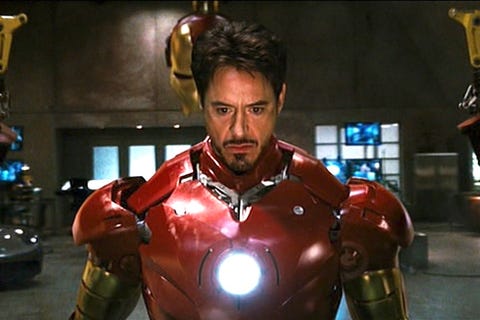


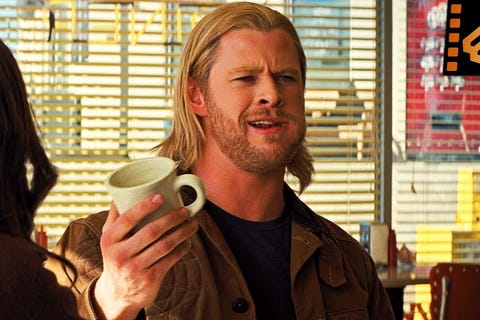

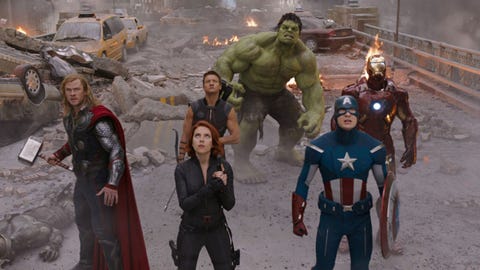
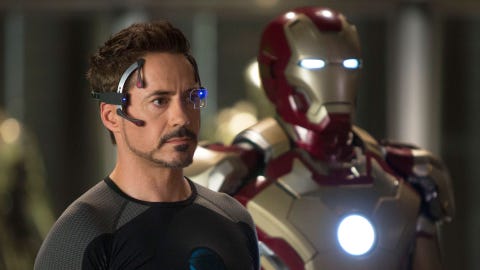
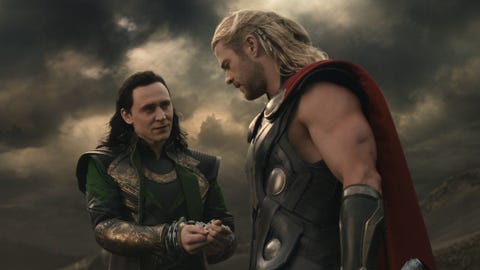
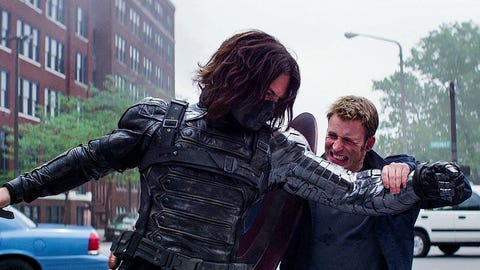

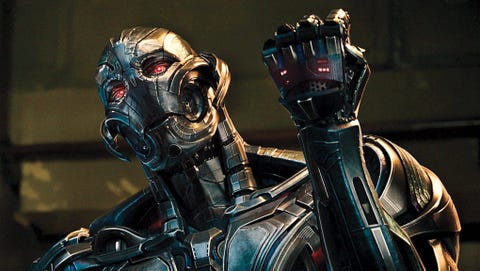
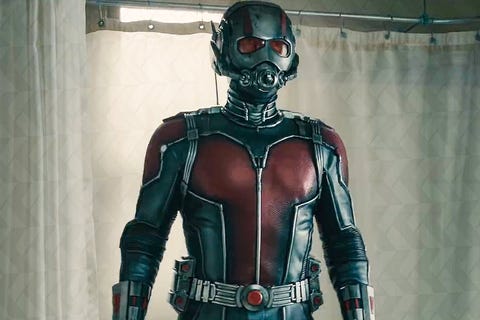
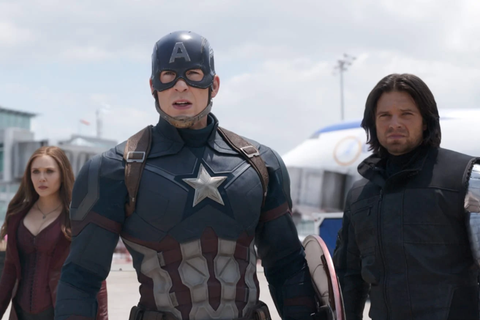
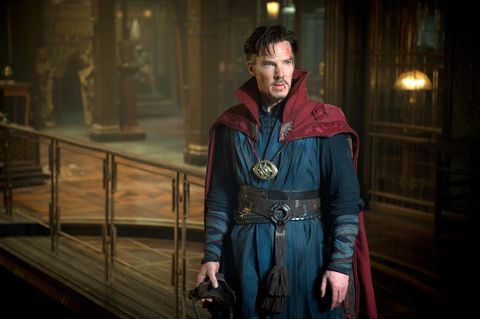
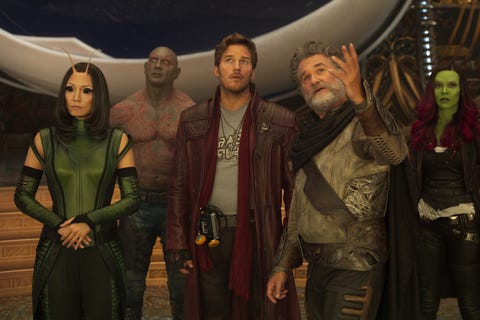
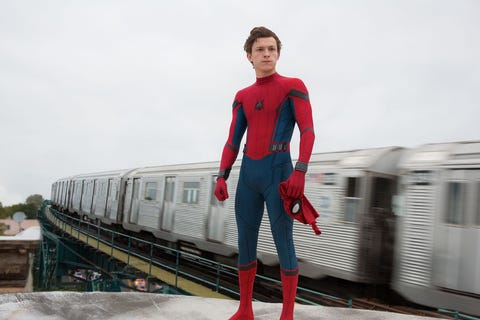
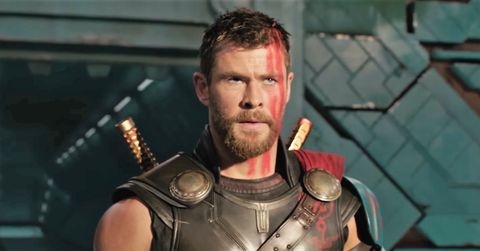
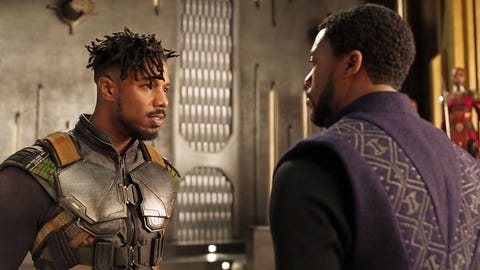
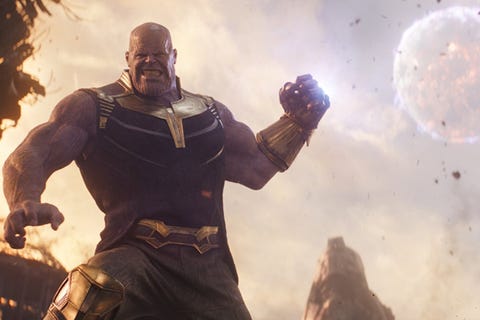

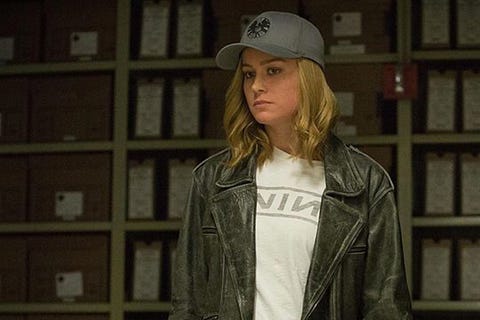
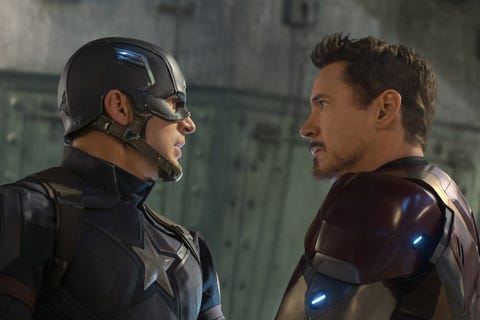
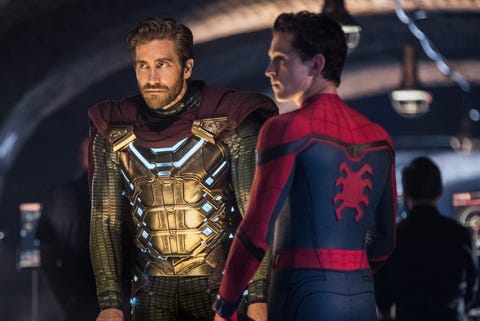


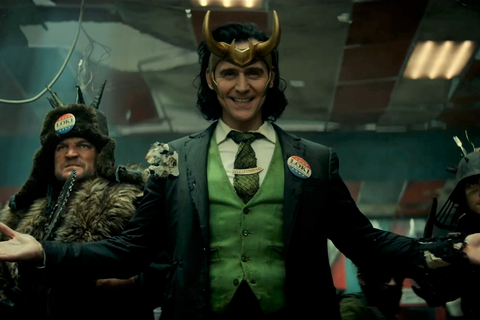
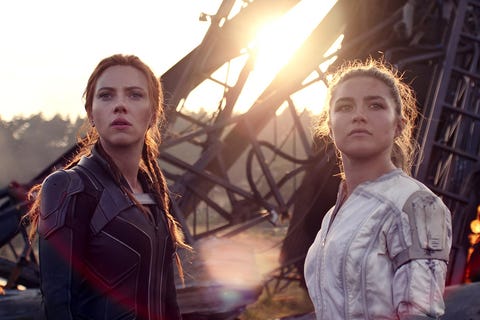





Comments are closed.